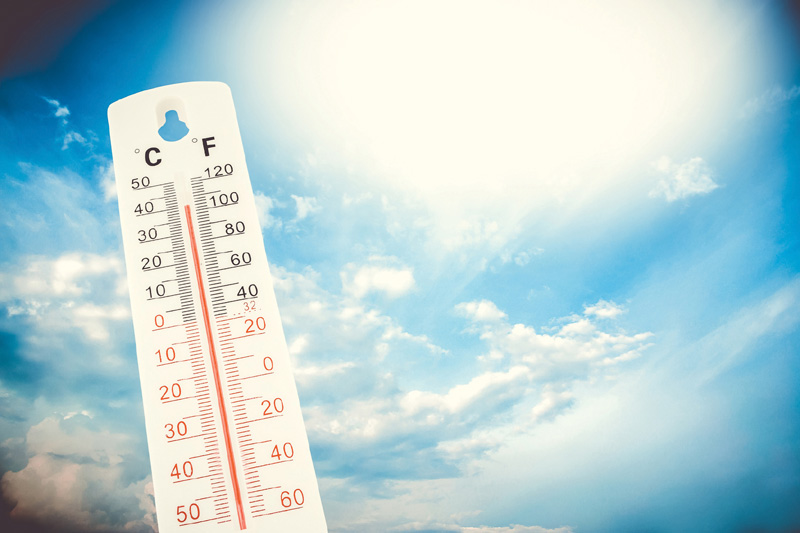Central Florida’s summer heat can be stifling, but here are some strategies to help you make the most of the season.
When it’s hot and humid, it’s harder to keep cool. That’s because our bodies depend on sweating – and evaporating that sweat – to reduce our temperatures. Humidity slows the process, so muggy Central Florida summers can feel hotter than summers in drier climates.
But there are some things we can do to protect ourselves when we have to – or want to – be outdoors. “If you are not accustomed to working or exercising in a hot environment,” advises Dr. Joy Jackson, director of the Florida Department of Health in Polk and Hardee counties, “start slowly.”
If you are exercising in the heat, including rest time in the shade. Chilling your body in air conditioning beforehand helps. According to The Centers for Disease Control and Prevention, it’s also advisable to avoid a hot – and heavy – meal before spending time in the heat.
“Hot meals, heavy meals do increase the risk of heat-related illness,” Dr. Jackson explains. “If you’re going to be doing yard work in the afternoon, it is probably not a good idea to have a heavy lunch.”
Warning signs of a problem are not feeling well, developing a headache, or becoming lightheaded or nauseous. If your heart starts pounding and you are lightheaded, it’s past time to get out of the heat, she says.
The CDC suggests three key strategies: Stay Cool, Stay Hydrated and Stay Informed.
Basic precautions to stay cool include loose-fitting, light-weight and light-colored clothing, along with sunscreen with a Sun Protection Factor of at least 15. Clothing with ultraviolet protection may help. The most protection is offered when it is new, before that protection can be washed out, and when it is dry and tightly woven, Dr. Jackson says. Sunglasses and wide-brimmed hats that protect the face, ears, and back of the neck are recommended.
Drink before you are thirsty, stay away from alcohol and sugary drinks, and replace lost salt and minerals with a sports beverage or salt tablets, the CDC says. Those with chronic health conditions like diabetes or high blood pressure should consult their physician first.
Keep informed about extreme-heat weather conditions and safety tips, plus know the symptoms of heat-related illness, CDC advises.
There is a range of heat-related illness, including heat cramps, heat exhaustion and heat stroke, the latter of which can be fatal.
When cramps occur during exercise, the person needs to stop the activity and move to a cooler space, Dr. Jackson says. Heat exhaustion symptoms include heavy sweating, clammy skin, a fast and weak pulse, nausea and vomiting. Moving to a cool place, sipping water, using wet cloths or cool showers are suggested. Heat stroke involves a body temperature of 103 degrees or higher, a fast and strong pulse rate, headache, dizziness, and confusion, which may cause them to lose consciousness. Call 911 for help, move them to a cooler place and do not give them anything to drink so they don’t vomit, she says.
Those who are most vulnerable to heat-related health issues are infants and young children, adults 65 or older, athletes and people who work outside, she says. According to the CDC, other factors that make you more vulnerable are chronic illnesses like heart disease or a mental illness, obesity, a fever, dehydration, a prescription drug, poor circulation and sunburn.
Here are some more tips:
• Because anyone can suffer from heat-related stress and skin cancer, precautions are good advice even for those with darker skin. “People of color should still wear sunscreen and protect their skin as much as possible,” Dr. Jackson says.
• “Never leave infants, children or pets in the car even if the windows are cracked,” she says. A vehicle left with the engine and air conditioning on may be vulnerable to crime.
• Limit your outdoor activities to the cooler morning and evening hours when possible, the CDC suggests.
• Fans won’t cut it when the temperatures rise into the high 90s. A cool bath or shower, or moving to an air-conditioned place, is better, the CDC says.
• Rely on a buddy to check up on you. Heat can cause confusion, or lead to unconsciousness. It’s a good idea to check on elderly individuals living without air conditioning at least twice a day when it’s hot, the CDC says.
It’s hard to generalize about how much sun is too much. “Individuals just need to be aware of how their bodies are handling the heat,” Dr. Jackson says.
This may vary because of a lot of factors, like whether the person was recently on antibiotics, whether they changed their blood pressure medication or started taking it, she adds.
“We all love summer. We like being outside,” she acknowledges. “Being cautious is important.”
